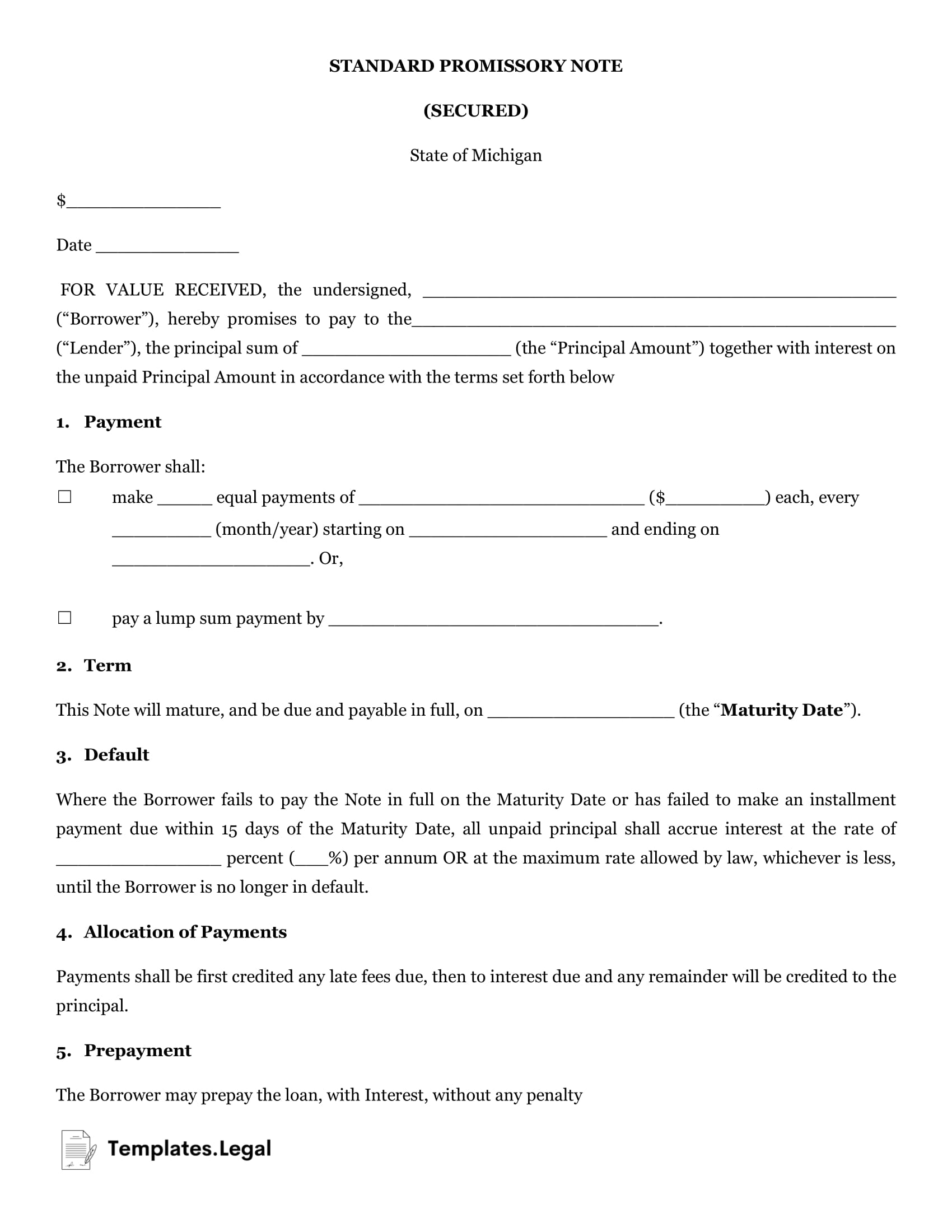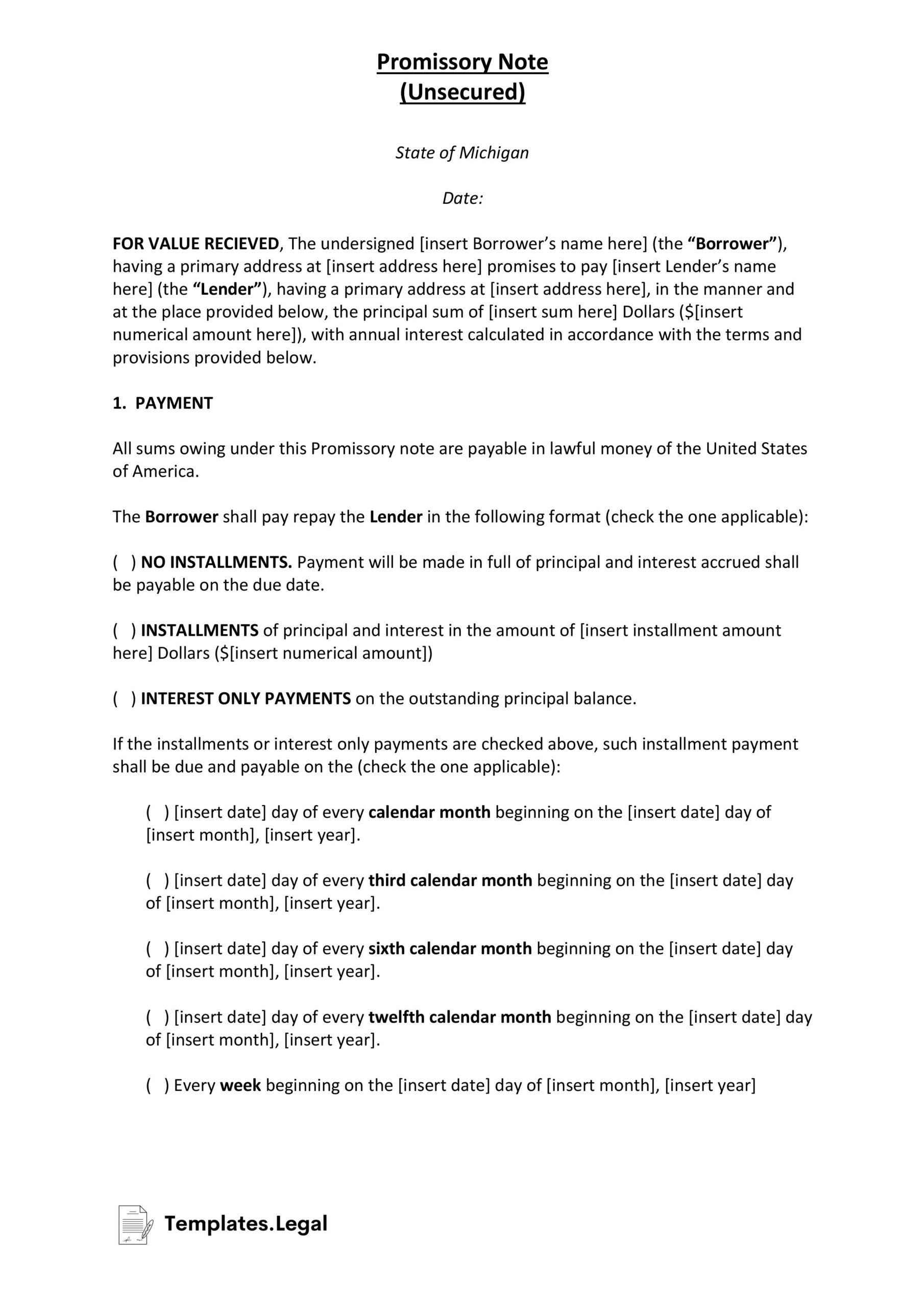Michigan Promissory Note Templates
A Michigan promissory note is a type of loan agreement between a borrower and a lender — it’s like an IOU. There might also be a co-signer involved who acts as a third party to a promissory note.
With promissory notes, the borrower receives a loan from the lender. Both the borrower and the co-signer, if there is one, read and acknowledge the terms. By signing the promissory note, they agree to repay the loan.
In the state of Michigan, there’s a legal interest rate (also known as a usury rate) of 5%, according to the state’s legislature in Michigan Compiled Laws (MCL) 438.31. However, it’s a bit more complicated than that. Unsecured loans by an unlicensed entity can charge 5% annually without a written contract, or 7% annually with a written agreement.
The two types of Michigan promissory notes are secured or unsecured.
Michigan Secured Promissory Note
Two parties — a borrower and a lender — are brought together through a document that outlines how the former will reimburse the latter. The lender can make a profit through the interest earned on top of the original loan.
The main difference between a secured promissory Michigan form and an unsecured one is that a secured promissory note includes security, also referred to as collateral. This could be a boat, a vehicle or even a home. The lender will receive this item if the borrower doesn’t repay the loan.
To write a secured promissory note in Michigan, you’ll need to include information like:
- The payment type
- The date that the balance and interest will be due
- The interest rate and potential late fees
- The current date and information about the borrower and lender
Michigan Unsecured Promissory Note
An unsecured promissory note differs from a secured promissory note in the level of safety provided to the lender. You can find a free Michigan promissory note form for this purpose.
For this type of promissory note template for Michigan, if the borrower couldn’t make payments according to the promissory note, the lender wouldn’t have an immediate way of getting their loaned money back. That’s why lenders should be careful when making an unsecured promissory note.


